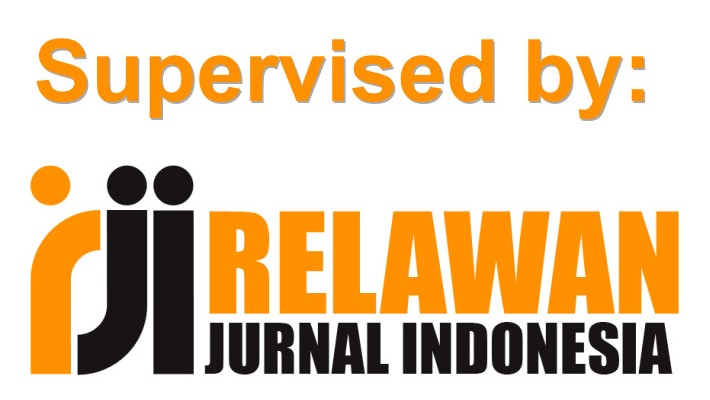EPISTEMOLOGI ILMU PENDIDIKAN AGAMA ISLAM: KONSEP EPISTEMOLOGI PERPSEKTIF BARAT DAN ISLAM
DOI:
https://doi.org/10.55558/alihda.v19i1.114Keywords:
Epistemology, West, Islam, KnowledgeAbstract
This research aims to understand the epistemology of western and Islamic views.Epistemology is a theory of knowledge,related to philosophy can be exemplified like a tree that has branches. The tree then has branches in the form of parts of science: philosophy of science, ethics, aesthetics, philosophical anthropology and metaphysics. Epistemology as part of the branch of philosophy is devoted to sources of knowledge.The method in this research uses library research by collecting data from writings (literacy) that are related to the topic discussed, namely Western and Islamic Perspective Epistemology. The researchers took this data from documentation in the form of books, research journals and supporting articles. The discussion method uses a descriptive-analysis method, namely explaining and elaborating the main ideas relating to the topic being discussed. Then present it critically through primary and secondary library sources related to the theme. Writerexplains three sources of epistemology: empiricism, rationalism, and criticism.The three types of theories of knowledge that are usually mentioned in Muslim thought are as follows: the first is the theory of rational knowledge, with figures such as Al-Farabi, Ibn Sina, Ibn Bajjah, Ibn Tufail, Ibn Rushd, and others. The second is the theory of sensory knowledge, which is limited to the classification of sources of knowledge and no philosopher has developed this theory. The third is a theory obtained through inspiration.
References
Ahmad Daudy, (1986). Kuliah Filsafat Islam, Jakarta: Bulan Bintang.
Ahmad Kharis Zubair, dkk, (1992). Filsafat Islam Seri 2, Yogyakarta: Lembaga Studi Filsafat Islam.
Ahmad Tafsir, (1999). Filsafat Ilmu Akal Dan Hati Sejak Thales Sampai Capra, Bandung: PT. Remaja Rosdakarya.
Ahmad Zainal Abidin, (2013). “Epistemologi Tafsir al-Quran Farid Esack.” Jurnal Teologia.
Amin Abdullah, dkk, (1992). Filsafat Islam: Kajian Ontologis, Epistemologis, Aksiologis, Historis Perspektif, Yogyakarta: LESFI.
Amin Abdullah, (1999). Studi Agama Normativitas atau Historitas, (Yogyakarta: Pustaka Pelajar.
Burhanuddin Salam, (2003). Pengantar Filsafat, Yogyakarta: Bumi Aksara.
Fu’ad Farid Ismail dan Abdul Hamid Mutawalli, (2003). Cepat Menguasai Ilmu Filsafat, Yogyakarta: IRCiSoD;
George E. Davie dalam Paul Edwards, (1972). The Encyclopedia of Philosophy, New York: Macmillan Publishing Co., Inc. dan The Free Press.
Harold H. Titus, dkk, (1984). Persoalan-Persoalan Filsafat , Jakarta: Bulan Bintang.
Harun Nasution, (1962). Falsafat dan Mistisisme, Jakarta: Bulan Bintang.
Harun Nasution, (1973). Filsafat Agama, Jakarta: Bulan Bintang.
http://barabbasayin.blogspot.com/2013/07/pengertian-dan-ruang-lingkup.html
http://ebookcollage.blogspot.com/2013/06/pengaruh-epistemologi.html
http;//en.wikipedia.org/wiki/Arche, artikel diakses pada 25 Oktober 2018.
Juhaya S. Praja, (1997). Aliran-aliran Filsafat dan Etika Suatu Pengantar, Bandung: Yayasan Plara.
Jujun S. Suriasumantri, (1990). Ilmu Filsafat, Jakarta : Pustaka Sinar Harapan.
Larens Bagus, (2000). Kamus Filsafat, Jakarta: PT. Gramedia Pustaka Utama.
Louis O. Kattsoff, (1996). Pengantar Filsafat, alih bahasa Soejono Soemargono, Yogyakarta: Tiara Wacana.
Miska Muhammad Amin, (1983). Epistemologi Islam: Pengantar Filsafat Pengetahuan Islam, Jakarta: UI Press.
MM. Syarif, (1991). History of Muslim Philosophy, terj. Ilyas Hasan, Bandung : Mizan.
Moh. Baqir Ash-Sadr, (1993). Falsafatuna, Bandung: Mizan.
Muhammad Baqir Ash-Shadr, (1999). Falsafatuna terhadap Belbagai Aliran Filsafat Dunia, Cet. VII, Bandung : Mizan.
Muhammad Yusuf Musa, (1988). Islam Suatu Kajian Komprehensif, Jakarta: Rajawali Pers.
Muslim Ishak, (1980). Tokoh-tokoh Filsafat Islam dan Barat (Spanyol), Surabaya: Bina Ilmu.
Nurcholosh Madjid, ed. (1984). Khazanah Intelektual Islam, Jakarta: Bulan Bintang.
Paul Suparno, (2001). Filsafat pendidikan, Yogyakarta : Penerbit Kanisius.
Poedjawijatna, (2002). Pembimbing ke Arah Alam FiIsafat, Jakarta: PT. Rineka Cipta.
Rizal Mustansyir, (2002). Ilmu Filsafat, Yogyakarta : Pustaka Pelajar.
Robert Ackermann, (1965). Theories of Knowledge : A Critical Introduction, New York : McGraw-Hill Company.
Sindhunata, (1983). Dilema Usaha Manusia Rasional, Jakarta : PT. Gramedia.
Soejono Soemargono, (1998). Berpikir Secara Kesilsafatan, Yogyakarta: Nur Cahaya.
Sugiyono, (2018). Metode Penelitian Pendidikan Pendekatan Kuantitatif, Kualitatif Dan R&D. Bandung: Alfabeta, cv
Tim Dosen Filsafat Ilmu Fakultas Filsafat UGM, (1996). Filsafat Ilmu, Yogyakarta: Liberty.
Ulin N, (2003). Jurnal Studi Islam, Semarang: Program Pascasarjana lAIN Walisongo.
W. Wildelband, (1956). History of Ancient Philosophy, trans., Herbert Ernest Cushman, New York : Dover Publication Inc.
.




















